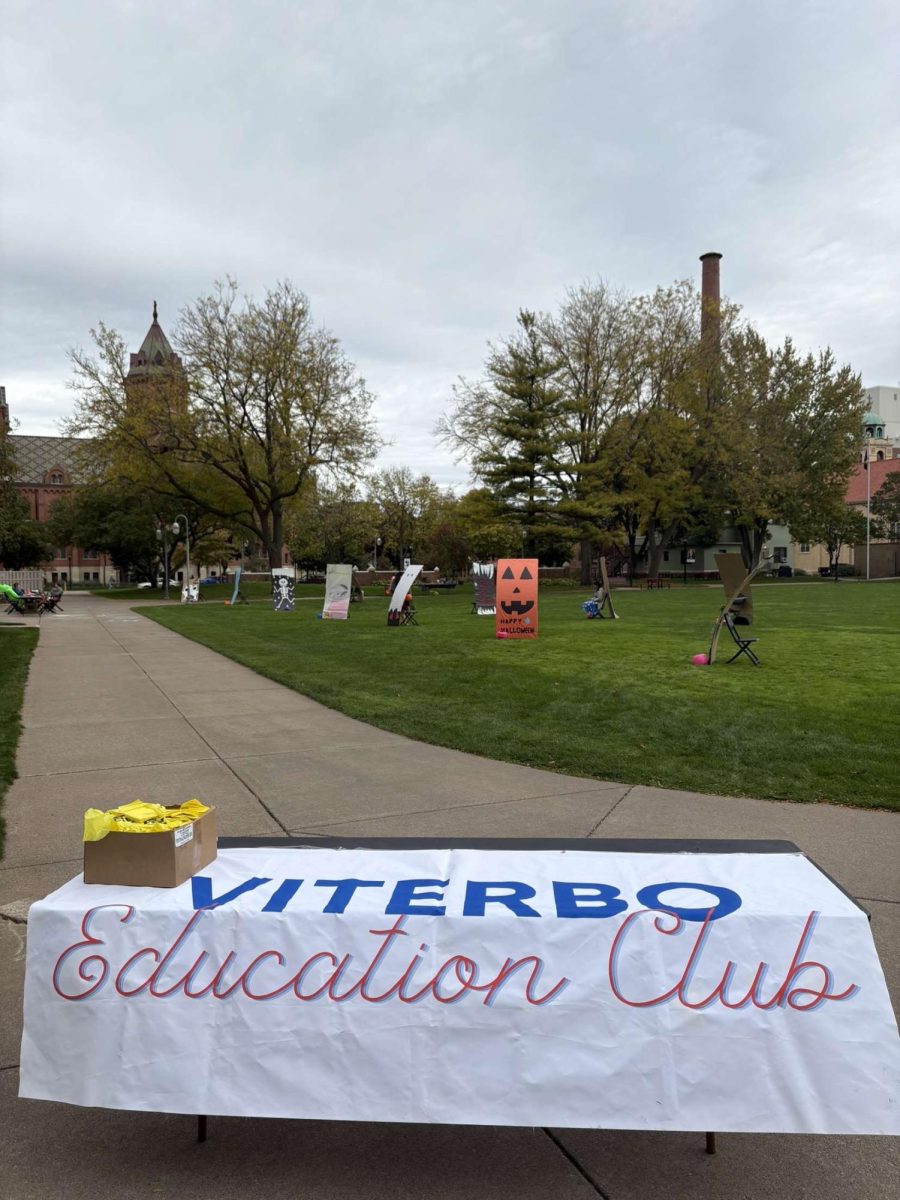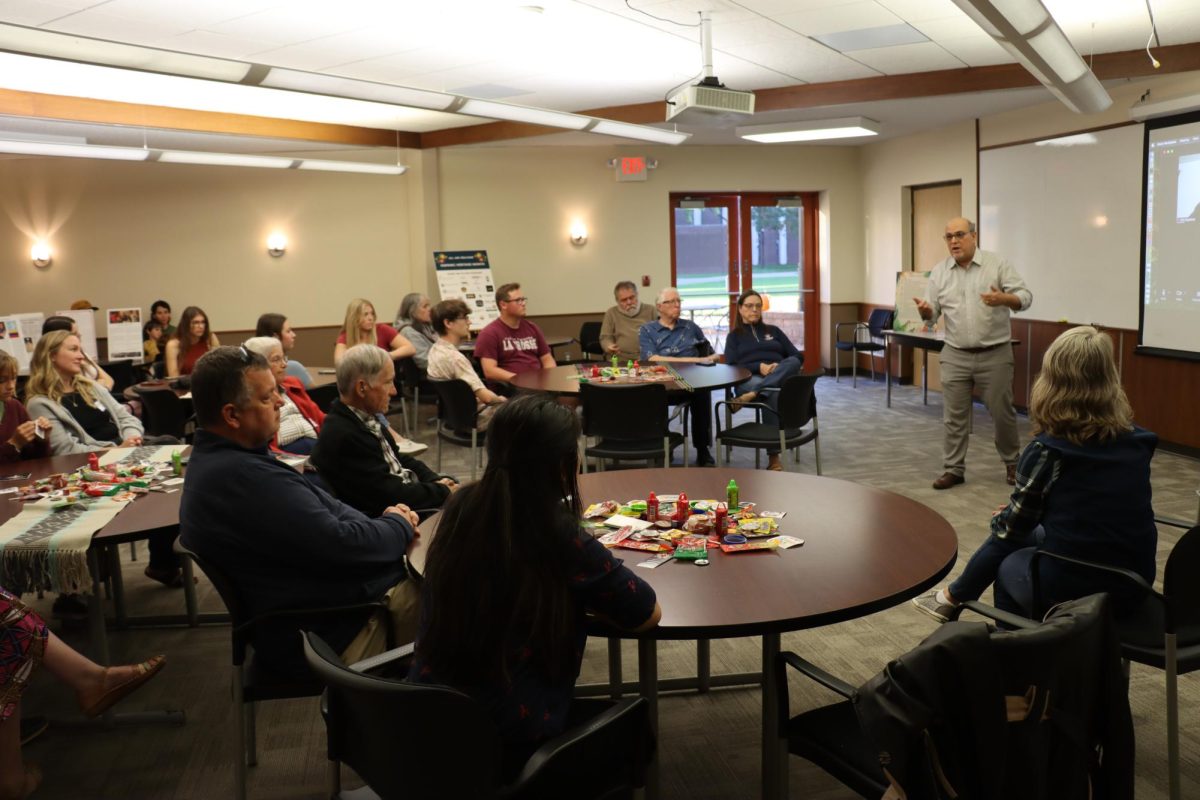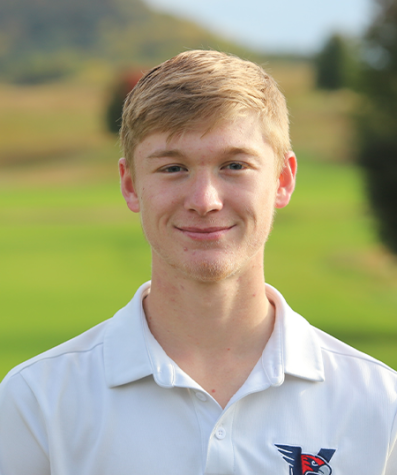On Wednesday, April 3, Ida Paluch Kersz presented the heartfelt story of her life, the loss of her family in the Holocaust, and the reconnection with her twin brother after over 50 years of separation. 2024 was the 17th annual Holocaust Educators Workshop, and Paluch Kersz was the 24th Holocaust survivor to speak at Viterbo.
Ida was born in Poland in 1939, just months before the Nazi invasion. Her family was sent to the Sosnowiec ghetto where she stayed until 1942 when she was passed through a wire fence to a Polish Christian family. Paluch Kersz remembers, “They had to change my identity, so they baptized me, so I became a Christian Catholic.” She survived the war after being baptized a Christian, and she immigrated to the United States; however, she always longed to find her birth family members. She had lived in Israel with her dad, and she knew her mom was dead, but many of her siblings were still lost. Eventually, after 50 years, she was shown a picture that she recognized as her twin brother, Adam.
The two spoke over the phone before eventually meeting for the first time in April 1995. Their reuniting was live on CNN and Ida has told the story ever since. Unfortunately, Adam Paluch passed away in January 2022 at the age of 82.
The workshop officially started on the night Paluch Kersz presented, but the meat of the event took place over the next few days. The event serves as both an educational tool for attendees and an applicative workshop for developing attendees’ educational skills – that is, it was an educators’ workshop on two levels: educating about the Holocaust and going on to educate others about it.
On Thursday, April 4, there were several sessions and a Q&A with Paluch Kersz in the Nursing Center room 196. Dr. Stephen Feinberg presented twice, covering “Germany Before the Nazis 1918-1933” and “Europe Before World War II 1918-1939.” Feinberg is a leading Holocaust educator, and he is the former Director of National Outreach at the United States Holocaust Memorial Museum (USHMM). Feinberg founded the Museum Teacher Fellowship Program for Holocaust educators, a program which several of the presenters at the workshop have attended.
After lunch, there were two more presentations, one by Dana Humphrey and one by Liza Wiemer. Humphrey is another leading Holocaust educator from Missouri, and she had several presentations during the workshop; the first of which was called, “Manipulating the Masses: Analyzing Nazi Propaganda.” The final presenter on Thursday was Liza Wiemer, an award-winning author and tenured educator. She presented on “Teaching The Assignment,” her novel discussing the effects of antisemitic group think which was based on a real-life incident.
On Friday, there were several more presentations, and the event took place in the Fine Arts Center FSPA Lobby. It started with another presentation from Feinberg, called, “Framing the Holocaust,” which explored the best educational methods for Holocaust education. Continuing the theme of educational tools, Sam Goldberg followed Feinberg and presented briefly on HERC (Holocaust Education Resource Center) and what they could offer to educators.
Kristi Moulton went next, presenting, “Using Graphic Novels in Holocaust Education,” and she talked about the positive and negative effects of using graphic novels such as “Maus” to teach the Holocaust. Humphrey presented again later in the day, exploring how widespread Nazi propaganda was in her presentation, “Nazi Education and Hitler Youth.”
The final presentation was a collaborative effort between Dave Nelson, a Holocaust educator from Westby, Darryle Clott, the long-time organizer of the workshop, and Denise and Kim Rostad, the children of Mary Rostad, a former resistance worker in Belgium and France during the war. Nelson is another USHMM Teacher Fellow, and he has been teaching Mary Rostad’s story for over ten years.
Holocaust education has never been so critical at all levels of coursework, and it must be heard from as many perspectives as possible. Educators know the stories, but survivors lived them. Paluch Kersz said, “I’ll speak to any group… I’m going to spread the word because antisemitism is coming out again… It is so important that somebody who is not Jewish is interested in saving Jewish lives and Jewish hearts.”


